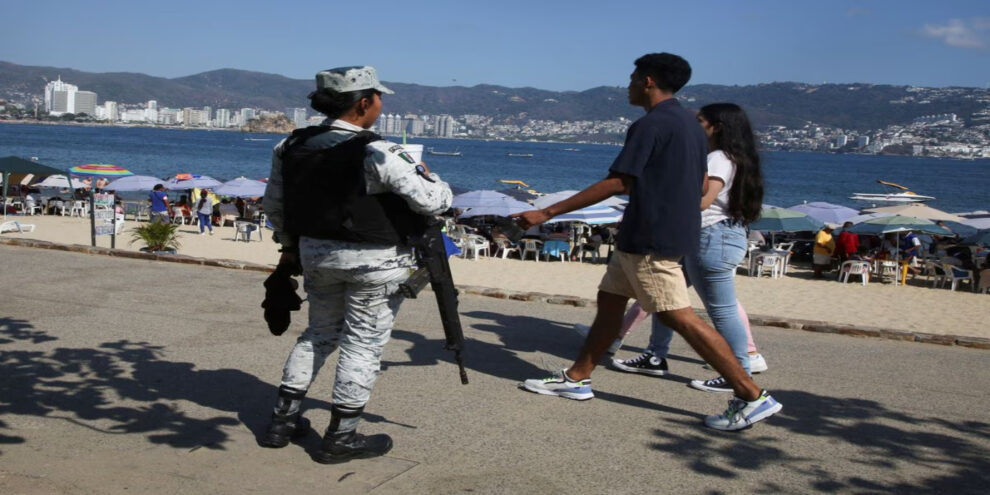In recent days, two photographs have connected the nearly 4,000 miles (6,300 kilometers) that separate the Mexican state of Quintana Roo and the Chilean city of Santiago. The images are radically different, but they speak of the same thing: a security crisis. In the first photo, soldiers are seen patrolling the beaches of one of Mexico’s most popular tourist spots. From the Caribbean to the Pacific, from Cancun to Acapulco, the goal is the same: to protect visitors during Easter week — a vacation period that began with eight murders in those two destinations. The second image shows the president of Chile, Gabriel Boric, standing with former presidents Sebastián Piñera, Michelle Bachelet and Ricardo Lagos, at the funeral of Daniel Palma, the third police officer to be assassinated in just over three weeks.
An imaginary line can be drawn between the militarization of the Mexican coast and the show of unity from the Chilean political class — one that has very real consequences in everyday life in the region. It crosses Central America, Ecuador, Peru and extends to Colombia and even Argentina. Behind it is organized crime, violence and gangs that exploit migration routes. It’s a security crisis that is hampering government plans and alarming the people of Latin America, who list it as their top concern. In Chile, it is threatening to break apart Boric’s government coalition. Last week, the coalition was divided in Congress on a law that would increase the power of the police — a measure that was eventually approved. Last year was Chile’s most violent in the last decade, with the country recording a homicide rate of 4.6 per 100,000 inhabitants.
That figure is well below the 40.4 registered by Venezuela, but it’s an anomaly that has put the young left-wing president in a difficult situation. The security crisis is compounded by migratory issues — the suspects in the latest police officer murder are Venezuelans. To address the mass arrival of foreigners, the Chilean government has deployed the army on the northern border. “When it comes to fighting crime in the Chilean state, there are no rifts… There is no government and opposition, there is no left or right, there are no old people or young people. We are all united in this crusade,” Boric said last week. According to a regional survey published at the end of February by the Gallup consultancy, 71% of Chileans believe that crime had skyrocketed in the previous four months.
Source : El Pais
















